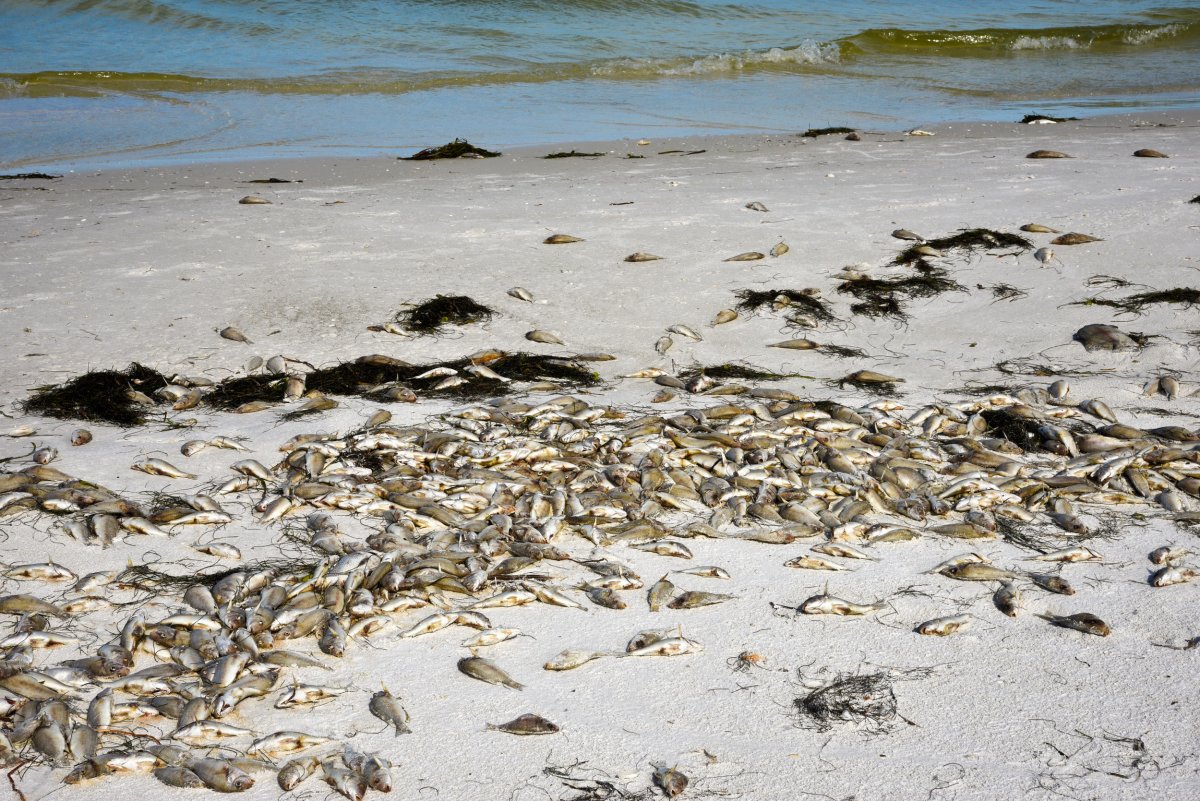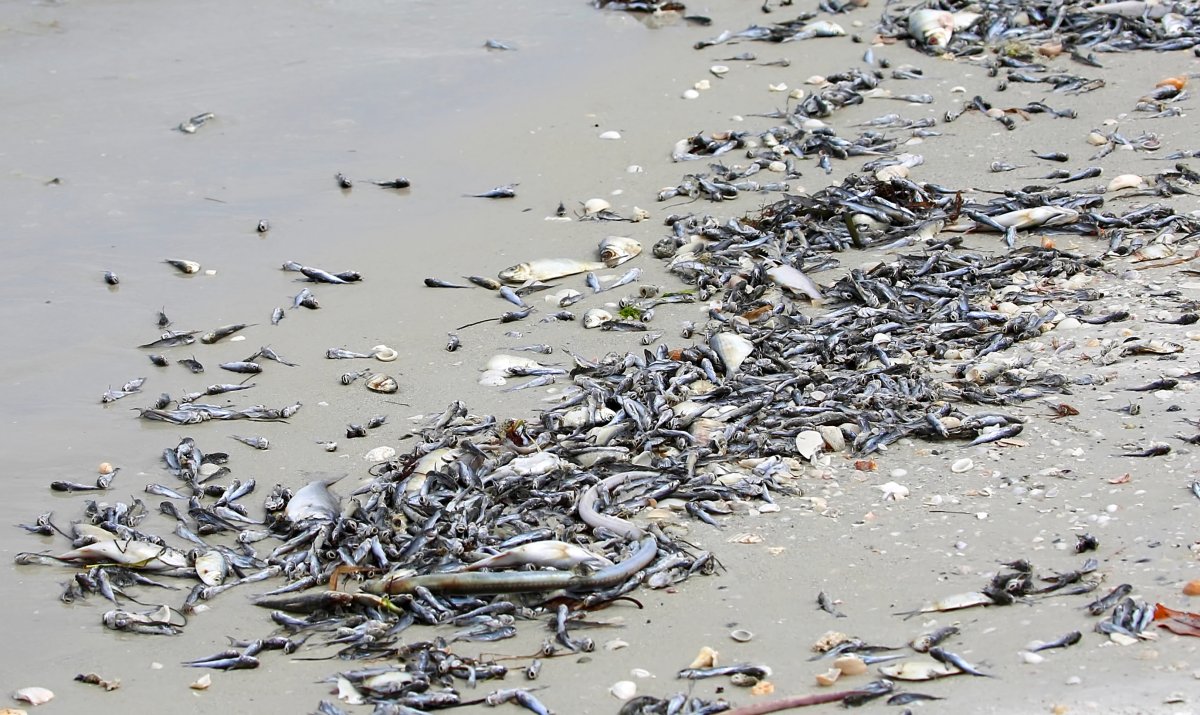A vile stench is emanating from a beach in Hong Kong thanks to thousands of rotting dead fish.
The fish began to wash up on Hong Kong's Stanley Back Beach on March 21. They were reported to authorities by locals on March 22 when the fish stretched to cover one-third of the sand.
The reek of the rotting fish was so pungent that people working on the street nearby could smell them, and birds and dogs were spotted munching on the decaying carcasses, according to local media.

Mass fish kills can occur for a number of reasons related to environmental stress, including drought, overpopulation, increasing water temperatures, infectious disease, chemical pollution, and algal blooms. One of the most common causes for fish to die all at once is lowered oxygen in the water, known as ecological hypoxia, which can be brought on by algal blooms, high temperatures, and in the wake of floods.
The cause for this mass death of fish has not yet been determined. However, at the nearby Repulse Bay Beach, just 2.5 miles away, water has tested positive for a red tide.
Red tides are blooms of algae, also known as harmful algal blooms, that often cause a rust-red color in the water. These algal blooms can cause fish to die en masse for several reasons, one being that the algae may produce toxins. The red tide currently plaguing beaches in Florida is caused by an algae called Karenia brevis, which produces a neurotoxin called brevetoxin that can kill fish and larger marine mammals.

Alternatively, algal blooms can wipe out large numbers of fish due to using up all the oxygen in the water. As the bloom grows, it saps all the oxygen out of the water, leaving less and less for the fish to access. Additionally, often a bloom can block the light from reaching plants at the bottom of the water column, causing them to die and rot, further lessening the available oxygen as decomposing bacteria break down the dead plant matter.
Hypoxia appeared to be the cause of another mass-dying of fish this week, when millions of dead fish accumulated in the Darling River in Australia as a result of recent flood waters receding, with organic matter washed into the riverway by the waters decomposing and starving the fish population of oxygen.
It is currently unclear whether the nearby red tide is related to the dead fish washing up on Stanley Back Beach, however. The public has been warned not to swim there until the water quality improves, as red tides can cause damaging symptoms in humans.
"It can affect humans in two ways. Consuming seafood contaminated with brevetoxin can lead to neurotoxic shellfish poisoning. More commonly, however, the toxin gets into the air and can cause respiratory distress," Larry Brand, a professor of marine biology and ecology at the University of Miami's Rosenstiel School of Marine and Atmospheric Science, previously told Newsweek.
Local residents initially attempted to clear the fish, to no avail. On March 22, the Hong Kong Food and Environmental Hygiene Department sent personnel to the beach, who collected many of the fish into garbage bags.
Do you have a tip on a science story that Newsweek should be covering? Do you have a question about fish kills? Let us know via science@newsweek.com.
Uncommon Knowledge
Newsweek is committed to challenging conventional wisdom and finding connections in the search for common ground.
Newsweek is committed to challenging conventional wisdom and finding connections in the search for common ground.
About the writer
Jess Thomson is a Newsweek Science Reporter based in London UK. Her focus is reporting on science, technology and healthcare. ... Read more
To read how Newsweek uses AI as a newsroom tool, Click here.






